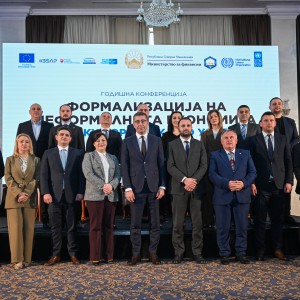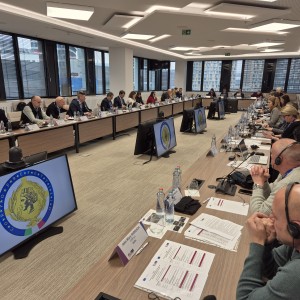News
30 October 2025 |News
RCC ESAP 3: Western Balkans Human Capital Days - Talent is our greatest currency
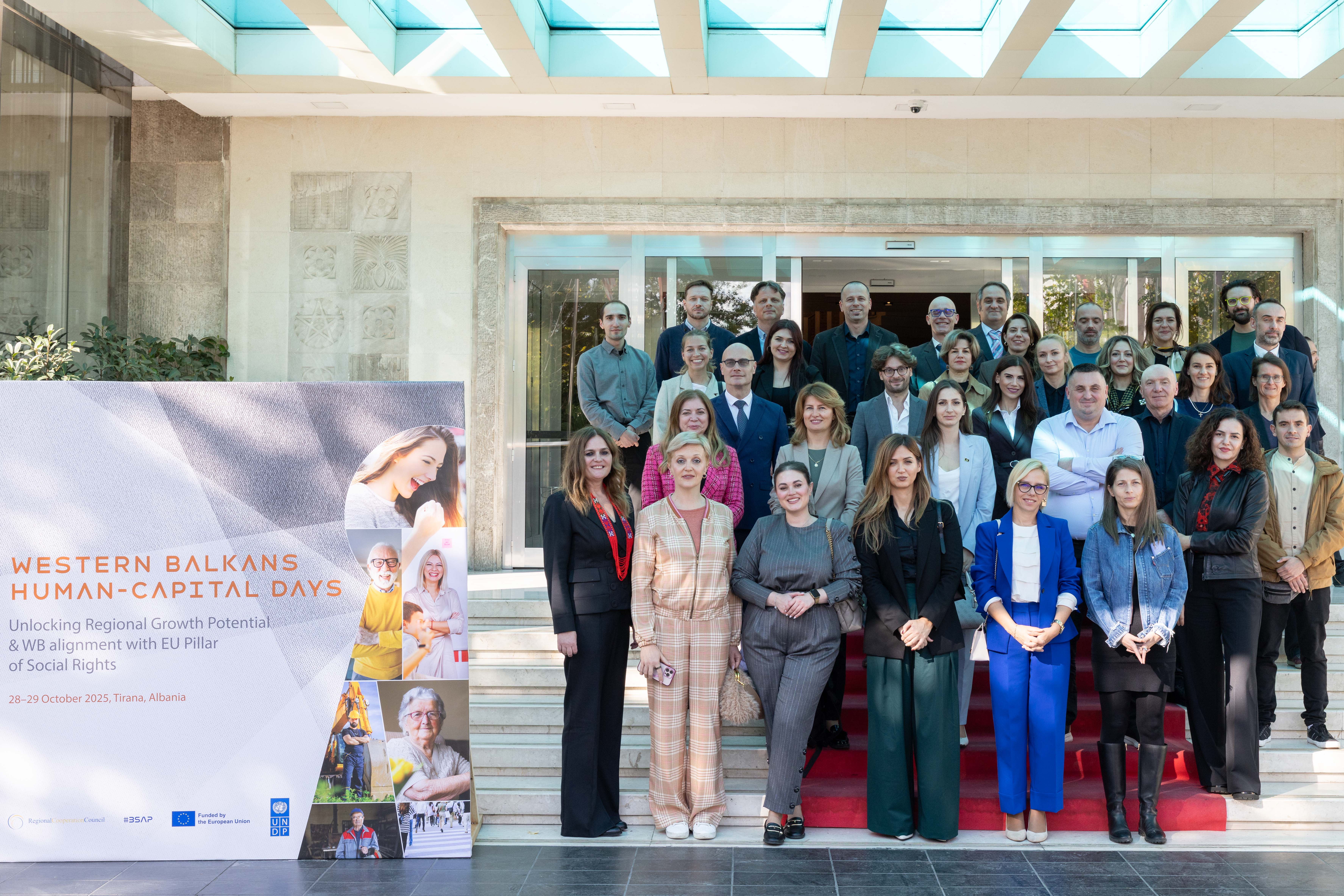
Participants of the Western Balkans Human Capital Days 2025 on 28 October in Tirana (Photo: Henri Koci)
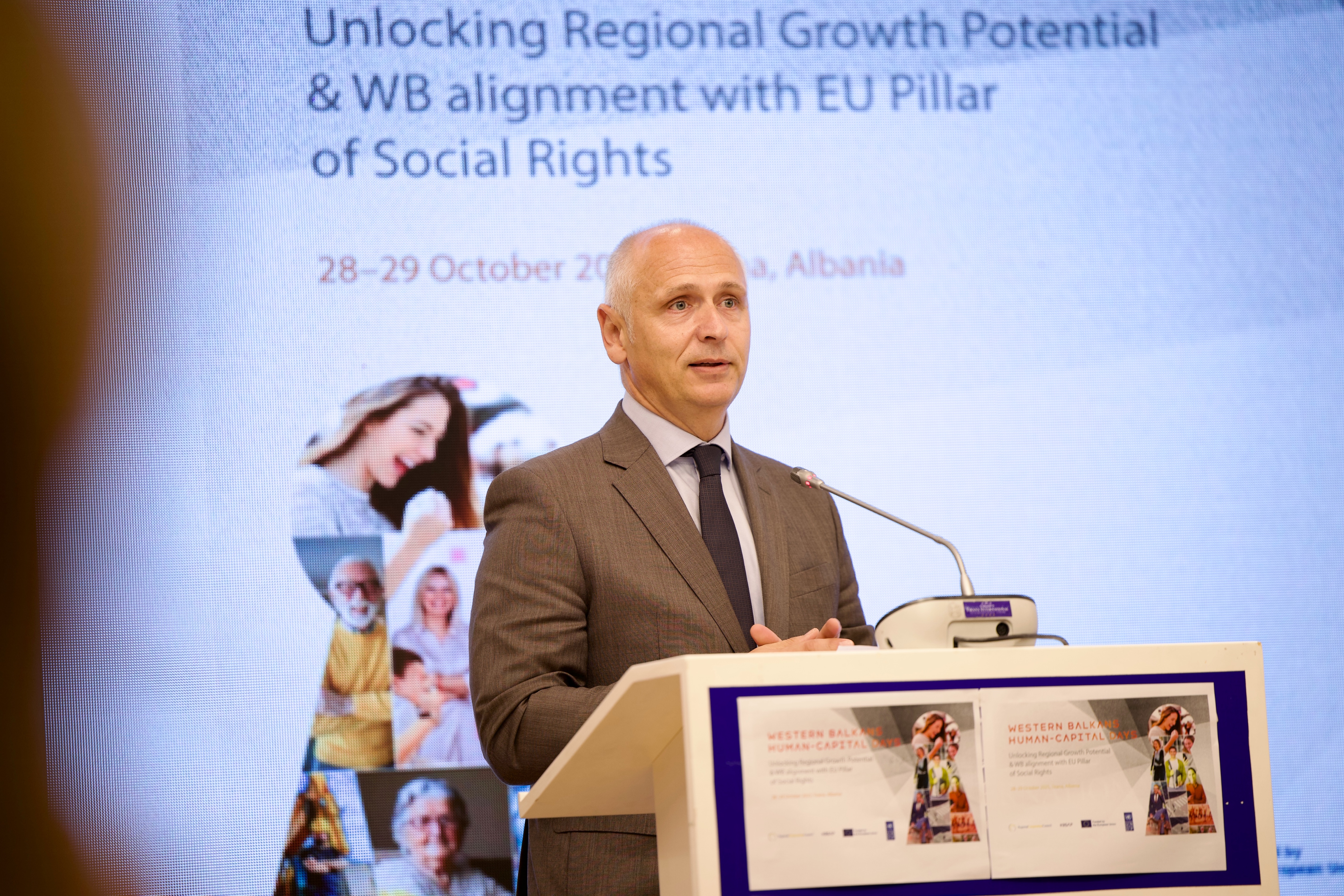
RCC Secretary General Amer Kapetanovic opening the Western Balkans Human Capital Days 2025 on 28 October in Tirana (Photo: Henri Koci)
Western Balkans Human Capital Days - a key regional dialogue platform for advancing inclusive growth and EU convergence through investment in people
Tirana – The Western Balkans Human Capital Days 2025 brought together representatives of the Western Balkans Six (WB6) governments, the European Commission, academia, private sector, international financial institutions, and civil society to discuss how investment in people can drive competitiveness, innovation, and inclusive growth across the region.
The two-day event was jointly organised by the Regional Cooperation Council (RCC), UNDP, and RCC’s Employment and Social Affairs Platform 3 (ESAP 3), in collaboration with the European Commission.
Opening remarks were delivered by Randi Davis, UNDP Resident Representative in Albania; Amer Kapetanović, RCC Secretary General; Delina Ibrahimaj, Minister of Economy and Innovation of Albania; and Antoine Kasel, Director for Labour Mobility and International Affairs at the European Commission’s DG EMPL.
In his keynote address, RCC Secretary General Amer Kapetanović warned that the region’s most valuable asset, its people, is under growing strain.
“Our region is not losing factories or technology; we are losing people, the very engine that keeps everything else moving,” Kapetanović said. “Investing in human capital is not a development strategy anymore, it is a survival strategy. Talent is our greatest currency. If we invest in it, nurture it, and value it, we will grow. If we let it drain away, we will struggle no matter what else we build.”
He cited striking figures to illustrate the cost of brain drain. Educating one person in the Western Balkans, from primary school through university, costs around €25,000. Between 2010 and 2023, around two million people left the region for the EU. When education costs, lost GDP, and replacement costs are combined, this amounts to an estimated €5.5 billion lost every year. “It’s not just money,” Kapetanović said. “It’s doctors, engineers, IT specialists, teachers, nurses, the people who build our societies.”
Youth unemployment in the Western Balkans remains at 25.5%, nearly double the EU average. “Not because our young people are not talented, but because too often, our education systems teach what the labour market no longer needs,” he added.
Kapetanović presented key RCC initiatives aimed at retaining and empowering regional talent, including over €10 million mobilised in the past three years for Digital Innovation Hubs, technology transfer offices, academia, and business cooperation programmes. He also announced two new regional initiatives:
- a Matchmaking Platform for Research and Innovation Infrastructures, aligned with the Berlin Process Summit commitments, and
- RISE, Regional Innovation for Start-up Excellence, a platform to support entrepreneurs with mentorship, training, and early-stage funding.
Throughout the two-day event, participants explored how the Western Balkans can align its human capital policies with the EU Growth Plan and the Common Regional Market 2.0 Action Plan, while addressing skills gaps, demographic decline, and the challenges and opportunities of artificial intelligence.
Day One focused on “Investing in Human Capital as a Growth Multiplier”, with discussions on competitiveness, labour markets, and innovation ecosystems. Day Two turned to the Western Balkans’ alignment with the EU Pillar of Social Rights, featuring the presentation of RCC ESAP 3 performance reviews, debates on undeclared work in the digital age, and labour market governance reforms.
Western Balkans Human Capital Days 2025, held on 28–29 October in Tirana, Albania, serves as a key regional dialogue platform for advancing inclusive growth and EU convergence through investment in people.


